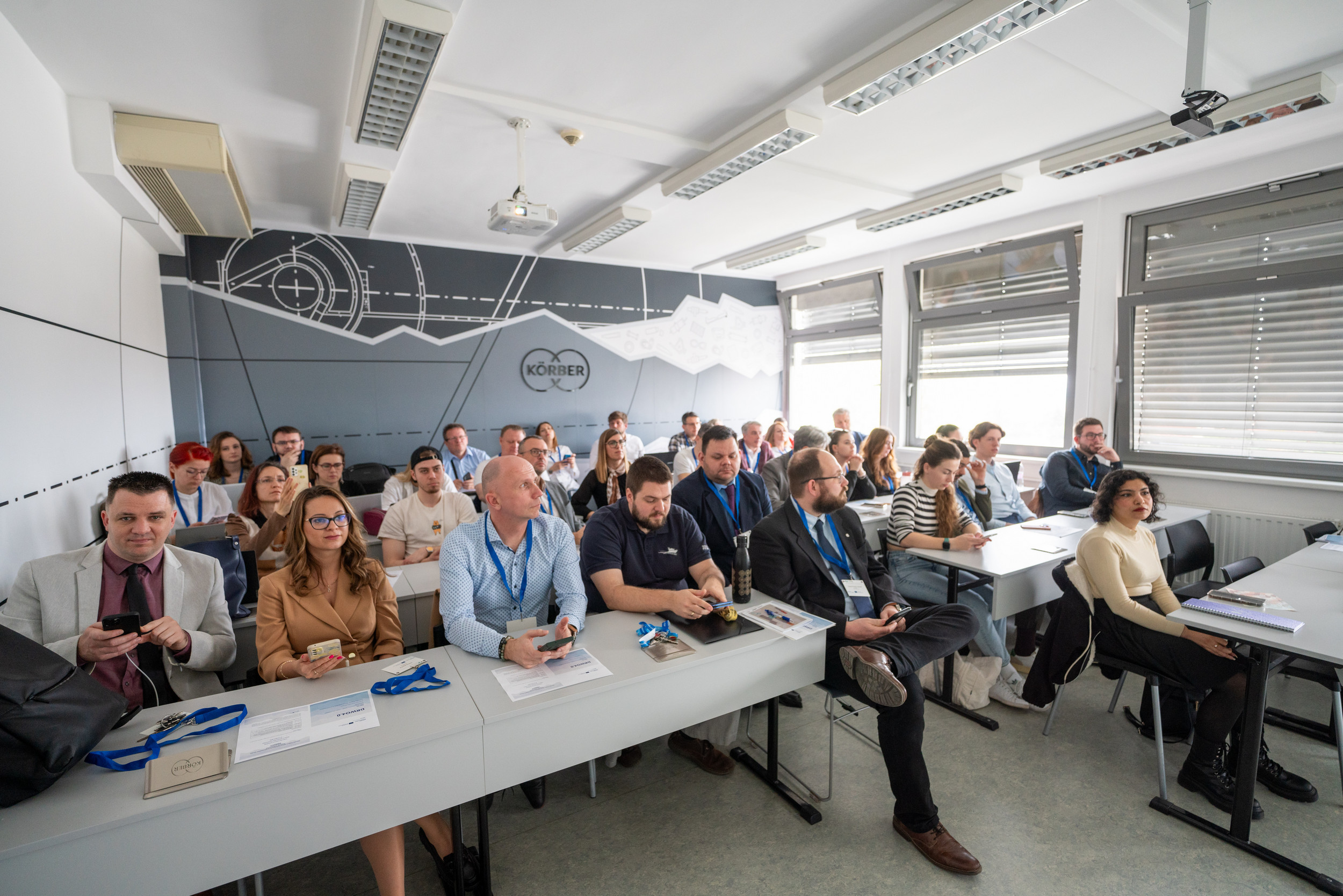In the frame of the Danube Region Programme Project ‘DRW04.0 – Danube Region Wood Industry Transformation Models towards Industry 4.0’ a Train the trainers workshop and the 1st Thematic Meeting took place at the Faculty of Engineering and Information Technology, University of Pécs.
The Croatian PA8 Coordinator, Helia Kovačević Grčić, also in the role of the Associated Strategic Partner (ASP), presented the the significance of this project for PA8 ‘Competitiveness of enterprises’ of the EU Danube Region Strategy. PA8 supports to the implementation of project activities, possibilities of transnational synergy, the linkage with the activities of the PA8 Working Group ‘Circular and Bioeconomy’.
The two events brought together experts from the wood industry, the construction sector and academia to strengthen collaboration and exchange knowledge on sustainable and innovative practices.
The first day, 3 April, was dedicated to the Train the trainers workshop titled Wood in sustainable construction. It started with a welcoming speech by Mr. Gyula Ferenc Vasvári (UniPecs) who introduced the DRWO4.0 project and the workshop topic.
The participants were also divided into groups and given the task of designing an innovative product through the application of the Life Cycle Assessment (LCA) methodology and its applicability in industrial environment, using the principles of circular economy; multifunctionality, reusability, recycling, detailed market analysis, carbon footprint reduction, preservation of forest resources and the environment, efficient waste management (reduce, reuse, recycle, recover, dispose, etc.), application of cleaner technology, process automation through the replacement of obsolete machines. The most common designed products were table, chair, wooden multifunctional children’s toy, glasses, etc. The day ended with the visit to the Cella Septichora Centre in Pecs where historical use of natural materials was presented. Through a series of lectures and interactive discussions, participants explored how wood can play a key role in sustainable building solutions. The workshop covered topics such as: The role of sustainability and innovation in the wood industry in fostering a circular economy, The Life Cycle Assessment (LCA) methodology and its applicability in industrial environments.
The second day, 4 April, featured the PE South – 1st Thematic Meeting under the topic Energy-efficient mechatronics in wood processing. The program began with a lecture by Tamás Bitó, an engineer from the Faculty of Engineering and Information Technology, University of Pécs, on modern mechatronics systems. This was followed by a presentation by Fakopp Enterprise Bt, showcasing a successful example of energy-efficient mechatronics in wood processing and innovative solutions for process optimization while reducing energy consumption.
Alongside these events, Pécs also hosted another key initiative—the Pollack Expo, an annual event organized by the University of Pécs, Faculty of Engineering and Information Technology. More than just a trade exhibition, it serves as a bridge between academia and industry, encouraging collaboration and providing students with hands-on experience in applied IT, civil engineering, environmental and electrical engineering, and architecture.
The success of the DRWO4.0 events in Pécs highlights the Danube region’s role in fostering innovation, sustainability and technological advancement to facilitate Industry 4.0-driven future.





